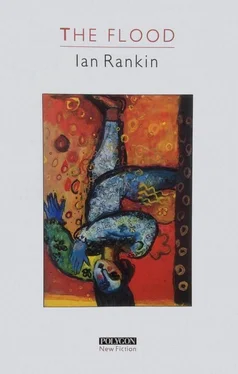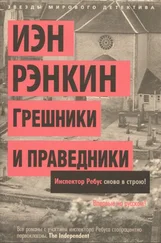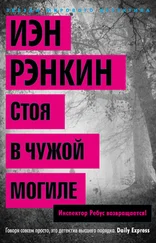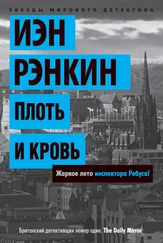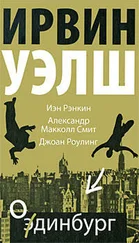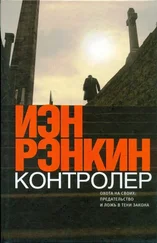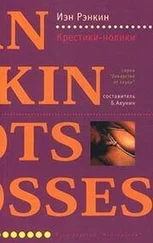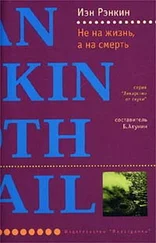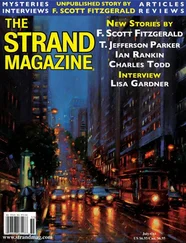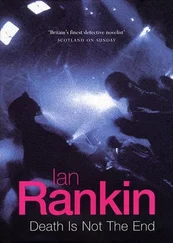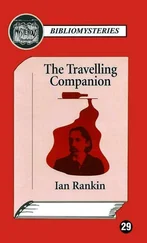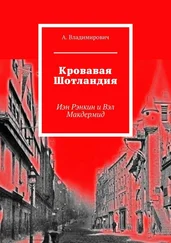The facts had piled up in his notebook randomly at first, but then more selectively. He thought he had found a kind of connection between two aspects of Fife’s history. Cromwell had selected Burntisland as one of the first places to attack (circa 1651?) because of its importance as a port. An Act of 1842 prohibited women from working underground. Thereafter sprang up the superstition that it was unlucky for a woman to venture into a pit. Pit. The very word stirred him. A pit had been opened by the Queen at Glenrothes in the late — 1950s (?). She inspected it. A few years later it was forced to close due to flooding. It was seen as part of the superstitious truth. The Earl of Wemyss had owned many of the Fife collieries, though not those around Carsden. Some of these pits were sunk, according to family records, on the sites of what had been witch-burning places. The people had been given chunks of coal as alms. Coal was a magic rock, a black diamond, mysterious and life-giving.
Carsden had its own witch-burning site, not a colliery now but the local park, which meandered down to a shallow river, aptly named the Ore. Suspected (proven?) witches were placed in a barrel by the good people of the village, and the barrel was then coated with tar and ignited. A lid was nailed on, and the whole contraption was rolled down the meandering slope where children now played and into the river. The screams carried downriver, the barrel smouldering and fizzing like a firework. It was horrible, and it was happening in the seventeenth century. Three hundred years ago. Mary Miller was, in a sense, lucky.
The random jottings had begun to connect for Darroch. Mining, it seemed to him, was a superstitious occupation, and it had gone hand in hand with the superstitions and witch-burnings of that age. He thought of Mary Miller. Poor woman. The superstitions held fast, gripped by the downtrodden class as a means of creating scapegoats for their bad fortune. It was the easy solution. Instead of raging at the landowners or looking to themselves, they merely picked on an outsider and branded her a witch, blaming her for any misfortune, any hiccup of economics. That made the villagers feel better in their hungry bitterness. They fed on it like a fire feeds on coal. Darroch checked himself. These were his parishioners. He should have patience with them, and Christian tolerance. It was hard, though, with all their chiselling ways. He read his book again, the fire warming his clothes so that they smelled newly laundered and ironed.
The very name of the town worried him. Carsden. It was named, presumably, after Carsden Woods just outside the town. The den was a valley near these woods. But what about the etymology of Carsden itself? There were two possibilities, one of which seemed ominous. He had travelled to Edinburgh, to the National Library, for these notes. He had looked at Grant’s Scottish National Dictionary, Craigie’s A Dictionary of the Older Scottish Tongue, Chambers’ Scots Dictionary, and Jamieson’s Scottish Dictionary. He had found a kind of consensus. “Car” meant left or left-handed. It also meant (presumably because left-handedness was considered ominous by superstitious people) sinister, fatal, or wrong in a moral sense. “Carlin” (also “carling”, “carline”, “karlyn”, “karling”) meant a witch. This was especially true when used in the Lothians, Ayrshire (another notorious witch-hunting area) and Fife. This had led Darroch to deduce that Carsden would mean den of the witch. He researched into other similar place-names. Carlops, on the road south from Edinburgh to Biggar, was named after its imposing rock. He found that there were two versions of the etymology. One stated that it was a place from where witches had flown, originally Carlings-Loups. The other claimed that the rock was the site from where villagers would hurl suspected witches, shouting at them to fly now if they could. If Carlops derived its name from witches, then why not Carsden? In Jamieson’s Dictionary, however, he found that “car”, used as the initial syllable of a place-name, could mean “fortified place”, which would mean that Carsden had been a fortified den. No history of the area, however, spoke of fortifications until the time of St Cuthbert and the building of the kirk. It was a puzzle. Wickedly, he preferred to think of the former as the truth.
But no, no “witches” had ever flown away to safety from Carlops Hill. No “witches” had ever survived the grotesque drowning ritual in Carsden. There were no witches. All there was was superstition. He had entered a community where such beliefs still lived on. The mines had closed. Who was to blame? Abstracts such as economics and investment? You could not shake your fist at them. Better to find a scapegoat instead. That was what they had done. An unfortunate accident had marked Mary Miller physically as an outsider. Misfortune had dogged her publicly. She had been the perfect brunt. Darroch grew angry as he pretended to read. What could he do? He felt like rushing to the woman’s house and asking for her forgiveness on behalf of the whole town. He wanted to speak with her, to see her. She was endurance. She was Christianity. He was a sham by comparison. He had to tell her these things. He had to tell her not to be afraid. Her eyebrows were like lines of velvet or the backs of sleek black cats. Her face was pale but deft. Her hair was silver. Silver and black. He had to tell her. He had to see her.
Reverend Walker had told him that Mary did not work. Darroch put on his jacket, switched off the fire, and slammed shut the front door as he left.
He examined the character of the town as he walked. It was different now, different, certainly, from that first day when he had looked over his church with pride and hope. Raindrops dotted his shoulders, but he paid them little heed. They refreshed him.
It was a longish walk, and the wind blew into his face all the way, as if trying to deter him. Pieces of grit were swirled around Main Street and some picked at his eyes. He bowed his head into the gathering wind and walked on.
The cemetery stood at the top of a steep hill called The Brae. Her house was on the other side of the hill. Sweat was clogging his back beneath the nylon shirt, the woollen jersey, the jacket. He stopped for a second at the summit. The cemetery was quiet except for the cracked voices of the crows at Cardell kirk. He might pay Reverend Walker a visit while he was in the neighbourhood. He caught sight of a figure tending one of the graves. No, not tending it, but sitting in front of it on the damp grass. Her hair was unmistakable. He opened the gate to the cemetery and walked across the grass towards her. As he approached, he heard her voice. He realised that she was speaking to her dead parents. He stood stock still, numbed. Her voice was low and soft, like small sticks travelling with the river’s current. He hung back, not wanting to eavesdrop so publicly but doing it anyway. Finally she stood up, turning and seeing him. A quick rising of blood made her cheeks glow against her wind-pinched face.
‘Oh,’ she said.
He was, however, more embarrassed than she. He opened his arms in contrition. A horn sounded at the gate. She looked past him and he turned towards the sound. A man was waving from the car. She waved back.
‘I must be going,’ she said. ‘My boyfriend. The car.’ She pointed, then started off.
‘It was nothing,’ he said with mock heartiness. ‘I was just passing and thought I...’ She was waving back at him, smiling warily. Then she reached the gates and the car door opened from within. Darroch let his arms fall, then pushed his hands safely into his jacket pockets. She would think less of him now. He had been spying on her. Her graveside. Her parents. He looked at the marble, at the gold lettering. She had been speaking with them. It was the most private of things, and he had blundered in like a... a... Her boyfriend. She had a boyfriend. Perhaps, then, she felt happiness too.
Читать дальше
